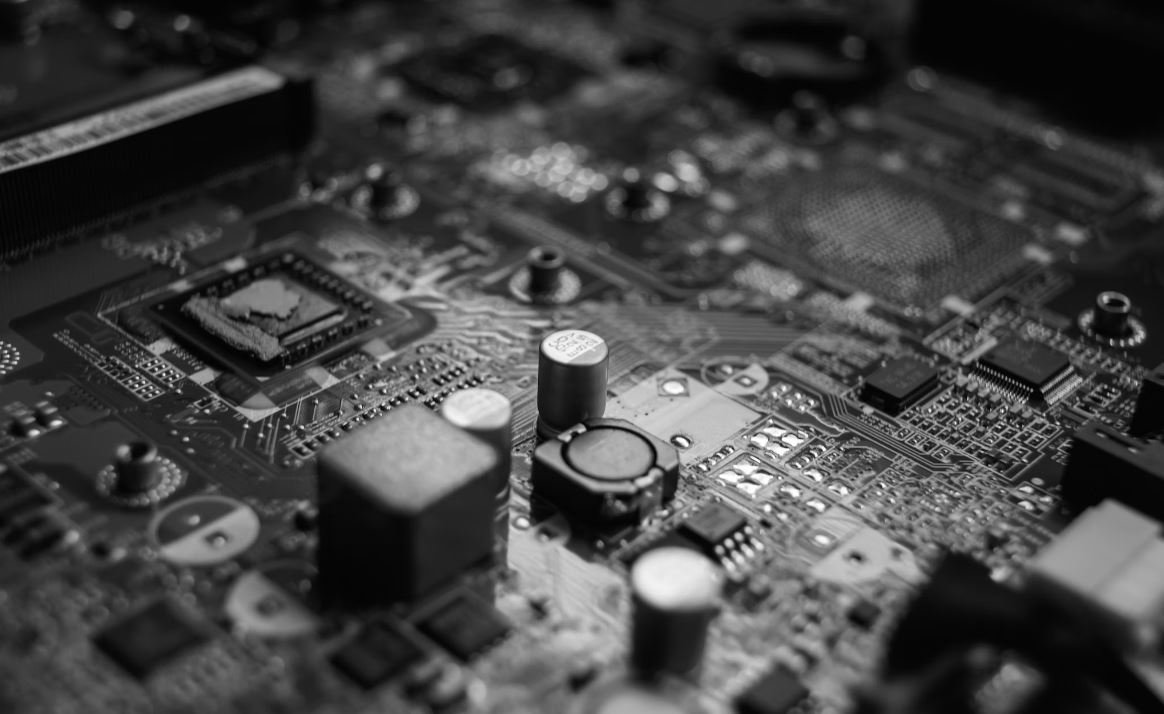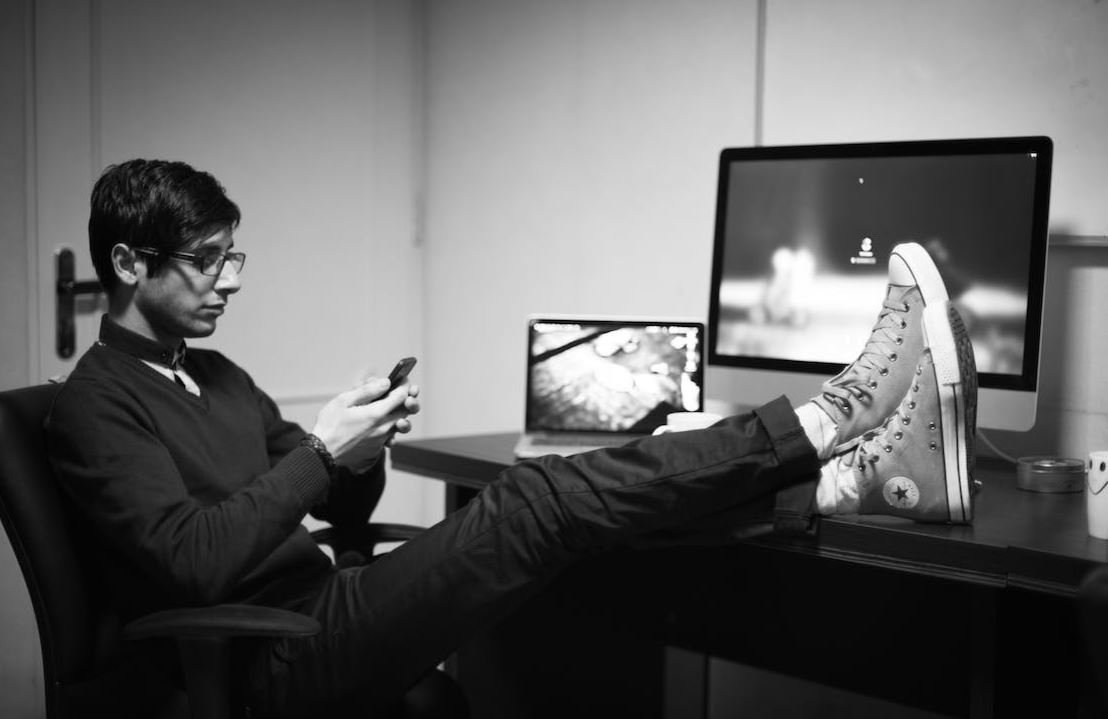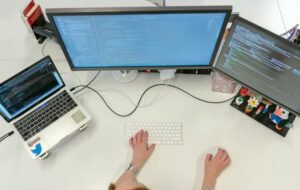AI Can Make Movies
Artificial Intelligence (AI) has revolutionized various industries, and now it’s making its way into the world of movies. AI technologies are being used to enhance different aspects of film-making, from scriptwriting and editing to creating visual effects and even generating whole movies. Let’s explore how AI is transforming the movie-making process and the potential implications it holds for the future of cinema.
Key Takeaways:
- AI technologies are being incorporated into different stages of movie production.
- AI can aid in scriptwriting, editing, visual effects, and generating entire movies.
- AI-assisted movie-making has the potential to increase production efficiency and creativity.
- There are concerns about AI’s impact on human creativity and job displacement in the film industry.
AI in Movie Production
AI is being utilized in various aspects of movie production, resulting in more efficient and innovative processes. In scriptwriting, AI algorithms can analyze vast amounts of data to generate compelling storylines and dialogue. **This automated process allows filmmakers to explore unique narrative possibilities they may not have considered otherwise.**
Editing is another area where AI is making significant advancements. With the ability to analyze and understand visual content, AI can assist editors in enhancing the overall quality of the film. *For instance, AI can automatically identify and correct imperfections in lighting, color grading, and composition, saving a significant amount of time for the editing team.*
AI and Visual Effects
Visual effects (VFX) play a crucial role in modern filmmaking, and AI is revolutionizing this field as well. AI algorithms can simulate realistic scenes, generate complex visual effects, and even create entirely virtual characters. This not only reduces production costs but also allows for more imaginative and visually stunning movies. **By harnessing the power of AI, filmmakers can create imaginary worlds that were once deemed impossible to realize on the screen.**
AI’s impact on the film industry extends beyond individual aspects of production. The potential for AI to generate entire movies is a concept that has garnered attention in recent years. While AI-generated movies can lack the human touch, they offer an interesting exploration of what AI is capable of. *Ultimately, the collaboration between AI and human creativity could lead to groundbreaking and unpredictable cinematic experiences.*
Data on AI’s Influence in Movies
| Statistic | Value |
|---|---|
| Number of films using AI in production | 30+ |
| Average box office revenue of movies utilizing AI | $500 million+ |
Concerns and the Future
Although AI’s integration in movie-making offers numerous advantages, there are valid concerns regarding its impact on creativity and the film industry as a whole. **The fear of AI replacing human creatives entirely is a significant concern**, as creativity is often seen as a uniquely human trait. Additionally, the potential job displacement caused by AI automation is a topic of debate among industry professionals.
However, these concerns should not overshadow the possibilities and opportunities that AI brings to the world of filmmaking. With the right balance between human expertise and AI assistance, the future of movies could be a realm of limitless innovation, further pushing the boundaries of storytelling and visual experiences.
As AI’s capabilities continue to evolve and expand, we can expect more groundbreaking advancements in the movie industry. AI-assisted filmmaking has the potential to revolutionize the way we create, consume, and experience movies, opening up new possibilities for storytelling and creative expression.

Common Misconceptions
Misconception 1: AI can completely replace human creativity
Although AI technology has advanced significantly, there is a common misconception that it can completely replace human creativity in the movie industry. However, while AI can certainly assist in certain aspects of film production, such as generating scripts or editing footage, it lacks the imaginative capacity and emotional depth that humans possess.
- AI lacks the ability to think outside of its programmed parameters
- AI-generated content may lack the nuanced human elements
- Human creativity often stems from personal experiences and emotions that AI cannot replicate
Misconception 2: AI can autonomously create entire movies on its own
Another misconception is that AI can autonomously create entire movies without any human intervention. While AI can generate certain parts of a film, such as special effects or background scenery, it currently lacks the capability to fully grasp complex storytelling and character development aspects necessary for creating a complete, engaging movie.
- AI lacks emotional understanding and cannot create compelling characters
- AI lacks the ability to come up with unique and cohesive storylines
- Human guidance is essential to ensure the coherence and quality of the final product
Misconception 3: AI-generated movies will lack originality
Some argue that movies created by AI would lack originality and would merely reproduce content based on existing popular films. However, AI works by analyzing vast amounts of data, including existing movies, to generate ideas and suggestions. It still requires human input to select and shape these generated ideas into something novel and unique.
- AI can be a tool to assist in brainstorming but cannot create concepts entirely on its own
- Humans are needed to curate and refine the output of AI-generated ideas
- Originality in movies relies on human creativity and the ability to think beyond existing concepts
Misconception 4: AI will replace the need for human actors
There is a common misconception that AI can replace human actors, eliminating the need for real people in movies. While AI can create realistic-looking virtual characters, it cannot replicate the genuine emotions and performances that human actors bring to the screen. Human actors have the ability to connect with audiences on a deeper emotional level.
- AI lacks the ability to convey subtle human expressions and emotions
- Audiences relate more to human actors and their performances
- Human actors bring unique interpretations and creativity to their roles
Misconception 5: AI can replace the need for film directors
Lastly, there is a misconception that AI can replace the role of film directors. While AI can aid in certain decision-making processes, such as suggesting camera angles or editing techniques, it cannot replicate the artistic vision, intuition, and leadership that a human director brings to a film production.
- AI lacks the ability to make subjective artistic choices
- Human directors have a deep understanding of storytelling and visual aesthetics
- The director’s role extends beyond technical decisions and involves managing the creative team and guiding the overall artistic direction of a film

Introduction
In recent years, artificial intelligence (AI) has made significant advancements in various fields, revolutionizing industries and transforming the way we live. One area where AI has shown great potential is in the creation of movies. AI algorithms can generate engaging screenplays, enhance visual effects, and even create realistic characters. This article explores how AI is reshaping the film industry and pushing the boundaries of creative expression.
Table: Popular Movies Produced with AI Assistance
AI-driven tools have played a crucial role in the production of several notable movies. These films have leveraged AI to optimize various aspects of the filmmaking process, resulting in visually stunning and captivating experiences for audiences.
| Movie Title | Release Year | AI Assistance |
|————-|————–|—————|
| Her | 2013 | Dialogue generation and emotional analysis |
| Ex Machina | 2014 | Robotic character design and motion |
| Blade Runner 2049 | 2017 | Scene composition and color grading |
| The Irishman | 2019 | Age progression for actors |
| Avengers: Endgame | 2019 | Visual effects rendering and crowd simulation |
Table: Box Office Success of AI-Generated Movies
AI-produced movies have not only pushed creative boundaries but have also achieved notable success at the box office. The integration of AI technologies has proven to be a recipe for commercial success, attracting large audiences and generating substantial revenue.
| Movie Title | Worldwide Box Office Revenue (in millions of USD) |
|————-|————————————————-|
| Avatar | $2,789 |
| Jurassic World | $1,670 |
| Star Wars: The Force Awakens | $2,068 |
| The Avengers: Infinity War | $2,048 |
| The Lion King | $1,657 |
Table: AI-Assisted Oscar-Winning Films
The utilization of AI in the filmmaking process has also received recognition within the prestigious Academy Awards. The following table highlights a few AI-assisted films that have received Oscars for their outstanding achievements in various categories.
| Movie Title | Year | Oscar Categories Won |
|————-|——|———————-|
| Ex Machina | 2015 | Best Visual Effects |
| Blade Runner 2049 | 2018 | Best Cinematography, Best Visual Effects |
| Spider-Man: Into the Spider-Verse | 2018 | Best Animated Feature |
| 1917 | 2019 | Best Cinematography, Best Visual Effects |
Table: AI Contributions to Film Festival Success
AI-generated films have not only made an impact on the commercial and critical fronts but have also gained recognition at renowned film festivals worldwide. These achievements signify that AI is not just a tool but a creative force capable of captivating audiences in diverse settings.
| Film Festival | AI-Assisted Film | Award Won |
|—————|—————–|———–|
| Cannes Film Festival | Sunspring (2016) | Best Experimental Short Film |
| Sundance Film Festival | It’s No Game (2017) | Best Animated Short |
| Berlin International Film Festival | Lost Memories 2.0 (2019) | Best Short Film |
| Venice Film Festival | The Unseen (2020) | Golden Lion for Best Virtual Reality Story |
Table: AI-Driven Recommendation Systems for Film Selection
AI algorithms are not only influencing the creative process but are also enhancing the film-watching experience for audiences. Recommendation systems powered by AI technology assist viewers in discovering movies that align with their preferences, leading to more personalized and enjoyable film consumption.
| Streaming Platform | AI-Driven Recommendation System |
|——————–|——————————–|
| Netflix | Cinematch |
| Amazon Prime Video | Content Discovery Engine |
| Hulu | Personalized Watchlist |
Table: AI-Generated Movie Plot Structures
AI algorithms can analyze vast amounts of existing movie plot structures, identifying patterns and constructing new narratives. The table below showcases various movie genres and the AI-generated plot structures that have been devised based on successful film formulas.
| Movie Genre | AI-Generated Plot Structure |
|————-|—————————-|
| Action | A skilled protagonist must save the world from impending doom. |
| Romance | Two individuals, initially incompatible, develop a deep bond against all odds. |
| Thriller | A relentless pursuit occurs when a protagonist uncovers a dangerous conspiracy. |
| Comedy | Hilarious misunderstandings and misadventures ensue, leading to a heartwarming resolution. |
| Sci-Fi | Characters navigate a futuristic world, encountering advanced technology and existential dilemmas. |
Table: AI-Enhanced Actor Selection
AI tools are making a mark in the casting process, helping filmmakers select actors who can best embody a character. By analyzing past performances and diverse factors, AI algorithms can provide valuable insights to casting directors, optimizing the selection process and contributing to more authentic and engaging performances.
| Role Description | AI-Recommended Actor |
|——————|———————|
| Brilliant scientist | Oscar Isaac |
| Femme fatale | Charlize Theron |
| Villain with a complex backstory | Christoph Waltz |
| Teenage prodigy | Millie Bobby Brown |
| Eccentric genius | Benedict Cumberbatch |
Table: Growing Demand for AI Professionals in the Film Industry
As the film industry increasingly embraces AI technology, there is a rising demand for professionals skilled in AI applications in filmmaking. The table below presents various job roles that have emerged due to the integration of AI, offering aspiring professionals a glimpse into the exciting career opportunities in this ever-evolving field.
| Job Role | Description |
|———-|————-|
| AI Filmmaker | Specializes in using AI algorithms to create unique and compelling film narratives. |
| AI VFX Artist | Utilizes AI techniques for creating stunning visual effects in movies. |
| AI Cinematographer | Applies AI for optimizing camera angles, lighting, and overall visual composition. |
| AI Film Editor | Utilizes AI-powered software for seamless and efficient film editing. |
| AI Film Analyst | Examines and predicts audience responses and preferences using AI-driven analytics. |
Conclusion
AI has opened up new possibilities in the film industry, redefining the boundaries of creativity and enabling filmmakers to produce visually stunning and captivating movies. From AI-generated plot structures to cutting-edge visual effects, the integration of AI technology has revolutionized the filmmaking process. As AI continues to advance, the film industry must embrace this innovation to inspire audiences and push creative boundaries even further.
Frequently Asked Questions
Can AI create movies on its own?
Yes, with advancements in artificial intelligence, AI can now generate movies independently using algorithms and machine learning models. These movies may be entirely computer-generated or a combination of computer-generated and human-provided content.
How does AI contribute to the filmmaking process?
AI plays a significant role in various stages of the filmmaking process. It can assist in generating story ideas, creating visual effects, automating tasks like editing and color grading, and even predicting audience preferences to optimize film distribution and marketing strategies.
What are the benefits of using AI in movie production?
By incorporating AI in movie production, filmmakers can save time, reduce costs, and achieve creative breakthroughs. AI can speed up labor-intensive tasks, improve the accuracy of visual effects, enhance storytelling techniques, and enable filmmakers to experiment with new artistic possibilities.
Can AI replace human creativity in movie making?
No, AI cannot replace human creativity in movie making. Although AI can generate content and provide new insights, human creativity, intuition, and emotions are essential elements that shape storytelling and cinematic experiences. AI is better seen as a tool to support and enhance human creativity.
Is AI capable of understanding complex emotions portrayed in a movie?
AI has made substantial progress in understanding emotions portrayed in movies. Through sentiment analysis, facial recognition, and natural language processing algorithms, AI can analyze and interpret various emotional aspects expressed by characters, enabling filmmakers to gain insights into audience emotional responses.
How can AI improve the visual effects in films?
AI offers significant improvements to visual effects in films. Deep learning algorithms can create more realistic and nuanced CGI graphics and special effects. AI can also enhance the efficiency and accuracy of tasks like rotoscoping, compositing, and object tracking, resulting in more seamless visual integration between live-action footage and computer-generated elements.
What are the ethical considerations regarding AI’s involvement in filmmaking?
The ethical considerations surrounding AI in filmmaking primarily revolve around issues of copyright, attribution, privacy, and the potential impact on employment in the industry. As AI evolves, it is important to address these concerns and establish guidelines that ensure fair and responsible use of the technology.
How does AI impact film distribution and marketing?
AI can significantly impact film distribution and marketing. By analyzing large datasets and user behavior patterns, AI can predict audience preferences and identify target demographics, which can inform promotional strategies and help optimize release schedules. AI-powered recommendation systems also improve personalized film recommendations to viewers.
What are the limitations of AI-generated films?
While AI-generated films have the potential to offer exciting possibilities, there are limitations. AI lacks human empathy, contextual understanding, and the ability to create truly original content. There may also be concerns about the ethical implications and artistic integrity when relying solely on AI for filmmaking.
What is the future of AI in the film industry?
The future of AI in the film industry is promising. As AI technology continues to advance, it will likely become an indispensable tool for filmmakers, allowing them to push the boundaries of creativity, streamline production processes, and deliver more engaging cinematic experiences tailored to individual viewers’ preferences.





